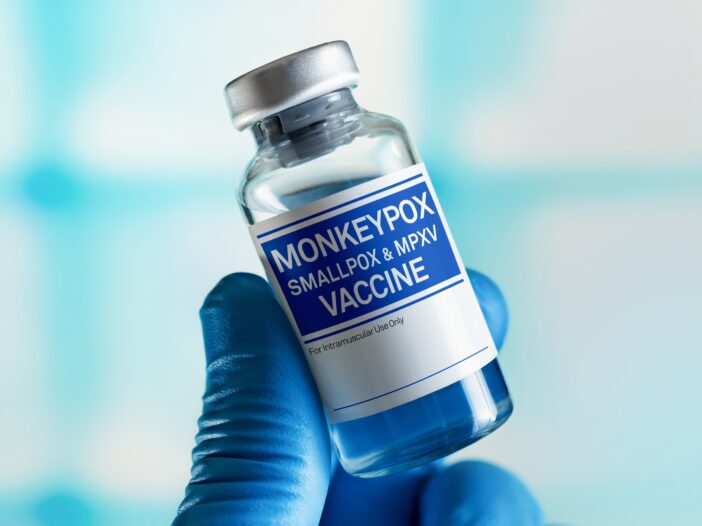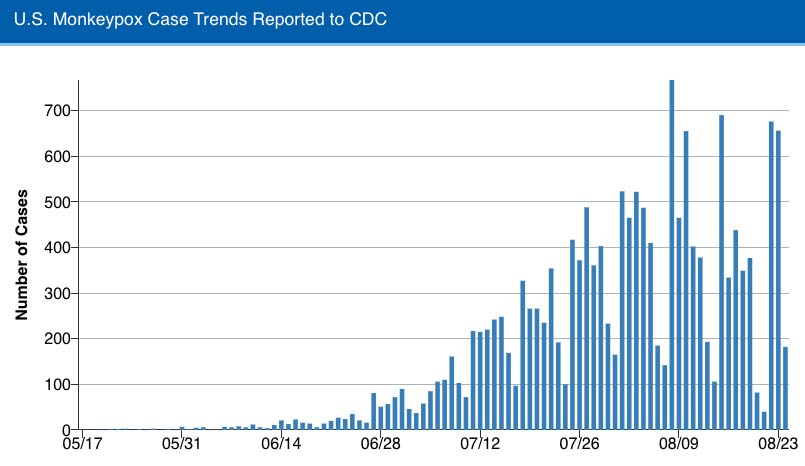
MPV is spreading rapidly
 As of August 12, 11,117 confirmed cases of MPV had been reported across 49 states. Five states account for roughly 60% of MPV cases – New York (21%), California (17%), Georgia (8%), Texas (7%) and Illinois (7%). The latest data from CDC indicate that the MPV epidemic continues to accelerate.
As of August 12, 11,117 confirmed cases of MPV had been reported across 49 states. Five states account for roughly 60% of MPV cases – New York (21%), California (17%), Georgia (8%), Texas (7%) and Illinois (7%). The latest data from CDC indicate that the MPV epidemic continues to accelerate.- Cases are starting to appear in children.
The federal government has been slow to respond
- There are shortages of every key tool needed to fight MPV (prevention, testing and treatment) – in large measure because of the federal government’s failure to plan and respond aggressively to protect the health of gay/bisexual men. TPOXX, the only drug available for the treatment of MPV, is in short supply, and doctors who have MPV patients must complete a 27-page application and obtain federal approval before they can administer the drug for their patients who are experiencing severe MPV-related pain.
- The country has an acute shortage of MPV vaccines because the federal government, even though it owned millions of doses of the vaccine, failed to ask the manufacturer to bottle it for distribution. The federal government is now racing to close this gap, but current estimates indicate that the vaccine shortage won’t be resolved before 2023.
- To make the limited supply of vaccines go as far as possible, the federal government has approved administration of a smaller dose between the layers of the skin rather than a full dose under the skin. CDC also recommends that people exposed to monkeypox receive post-exposure vaccination (ideally within four days of exposure).
The Biden Administration has declared MPV a national emergency
- The President named Robert Fenton, an emergency response expert, and Dr. Demetre Daskalakis, of the CDC, to lead efforts to coordinate a national MPX response. It is hoped that the emergency declaration will open new funding for the MPX response and light a fire under the federal bureaucracy to overcome its early fumbles.